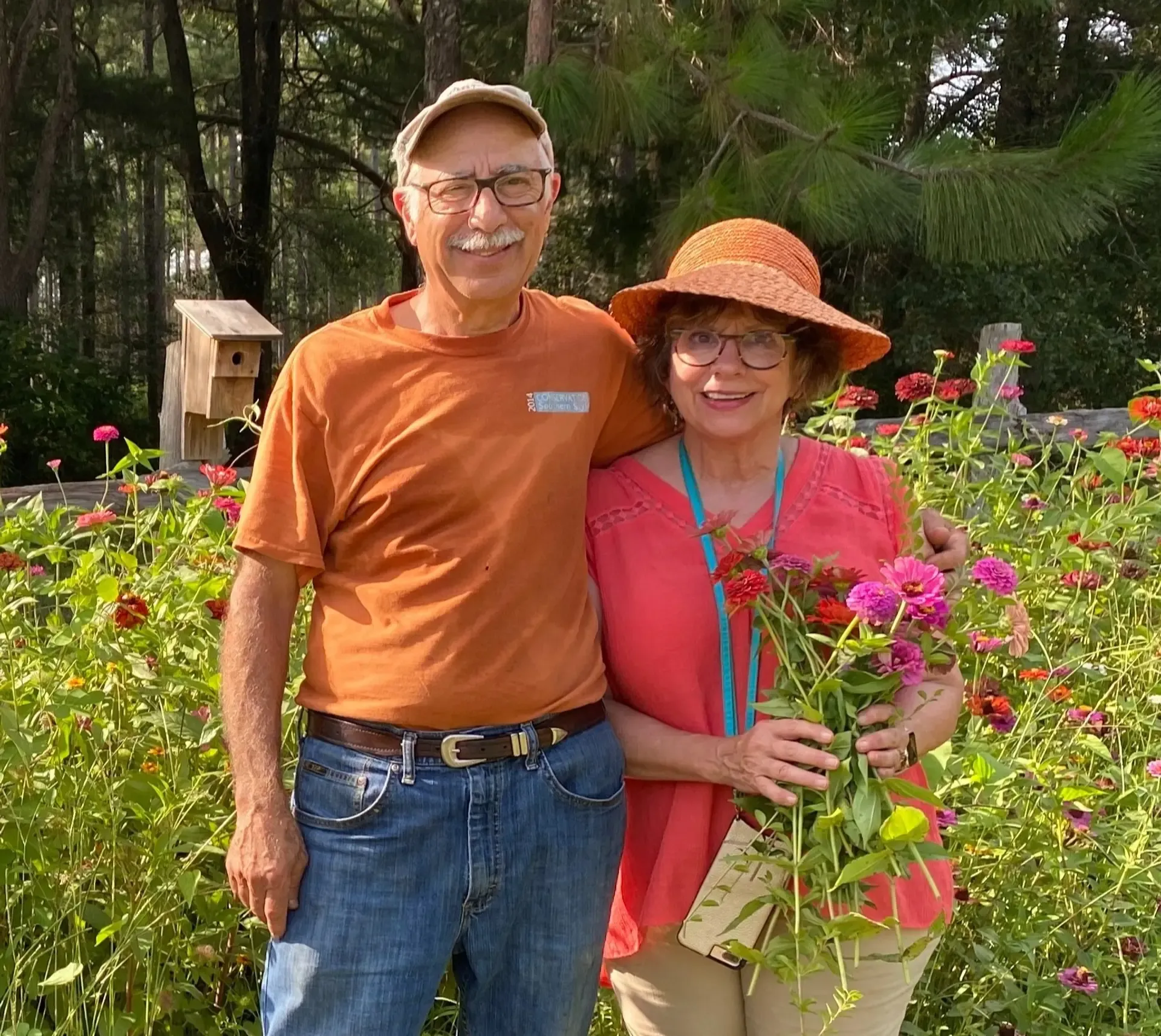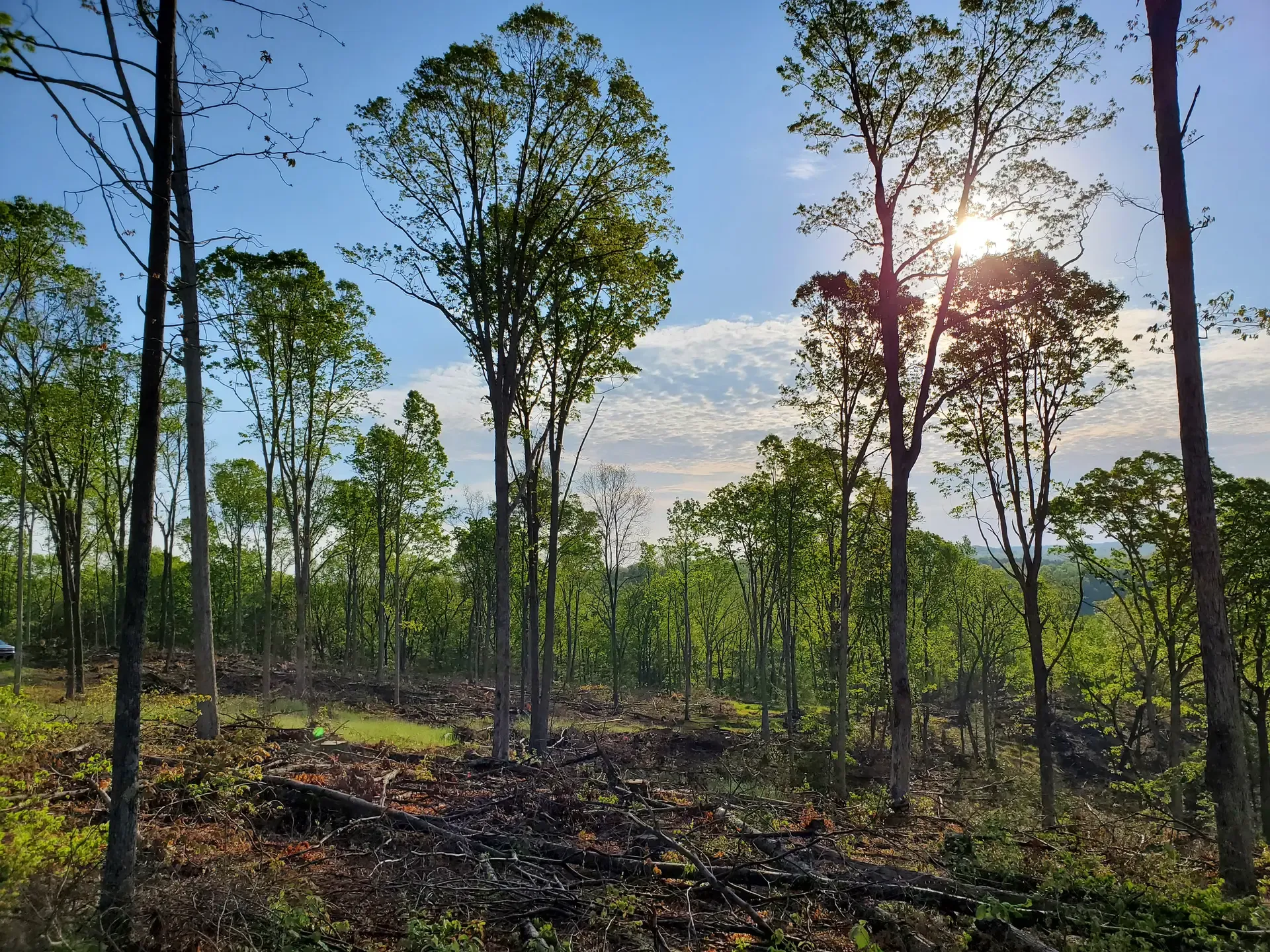Family Forest Blog

July 6, 2021
Embracing Alabama's Longleaf
As a curious child and Eagle Scout in southeastern Alabama during the 1950s, Salem Saloom was surrounded by longleaf pine forests like the ones he and his wife, Dianne, and son, Patrick, now manage.

July 6, 2021
ATFS Recognizes Outstanding National Volunteers
Each year the American Tree Farm System recognizes a number of individuals for their invaluable contributions of time and energy to their communities.

July 6, 2021
Branching Out to Fight Climate Change
If you launch a new initiative during the biggest public-health crisis in a century and it nevertheless gains traction, you might really be onto something. That was the takeaway for the American Forest Foundation (AFF) and The Nature Conservancy (TNC) after their joint venture, the Family Forest Carbon Program (FFCP), met with initial success.

July 6, 2021
AFF Applauds Introduction of the Disaster Reforestation Act in the House of Representatives
The American Forest Foundation, a national conservation organization that works to deliver conservation impact through the empowerment of family forest owners, releases the following statement in response to the introduction of the Disaster Reforestation Act.

July 6, 2021
In It for the Long Haul
The White Oak Initiative is working to create a 50-year strategy to conserve American white oak trees—which support everything from wildlife to key industries like furniture and wine and spirits.

June 28, 2021
Launching an Innovative Collaboration Between Landowners and Consumers for Climate Change
The American Forest Foundation (AFF) and IvyCo are launching an innovative collaboration to fight climate change by bringing together family forest owners and individual consumers. AFF, a national conservation organization, works to empower family forest owners across the U.S. to make a positive impact on their land.

June 16, 2021
American Forest Foundation Statement on California Budget Passage
The American Forest Foundation, a national conservation organization that works to deliver conservation impact through the empowerment of family forest owners, releases the following statement in response to the California State Legislature passing the state’s 2021-2022 budget.

June 10, 2021
American Forest Foundation Applauds the Introduction of the Rural Forests Markets Act
The American Forest Foundation (AFF), a national conservation organization, that works to deliver meaningful conservation impact through the empowerment of family forest owners, today applauds Representatives Pingree (ME-D) and Stefanik (NY-R) on the introduction of the Rural Forests Markets Act.

May 26, 2021
Determining a True Carbon Benefit Part 2: Baselines
The Family Forest Carbon Program has created a new methodology, including an innovative approach to setting a baseline, similar to what is done in medical trials.

May 20, 2021
A Q&A with Kedren Dillard, SFLR Landowner, ATFS-Certified Tree Farmer & AFF Board Member
As a forest landowner, Kedren Dillard and her family have spent decades working on improving and maintaining the land that has been in their family for generations. This deep connection between the land and her family has created an emotional connection that fuels the passion that Kedren and her family have to do right by the land.

April 20, 2021
AFF to Empower Family Forest Owners in Georgia to Improve Wildlife Habitat
Washington, D.C. (April 20, 2021) – The American Forest Foundation (AFF), a national organization that works to deliver conservation impact through the empowerment of family forest owners, today announced it has received a grant totaling $350,000 from the USDA’s Natural Resources Conservation Service (NRCS) to help family forest owners preserve and improve forested habitat for at-risk wildlife in Georgia.

April 13, 2021
Determining a True Carbon Benefit Part 1: Additionality
Of all the concepts in the world of carbon credits, perhaps the most difficult to understand, yet critically important is ‘additionality.’ Ensuring carbon additionality is essential to ensure a company’s climate investment is making a true, positive difference. Christine Cadigan, Senior Director of the Family Forest Carbon Program, further explains the concept.

April 13, 2021
American Forest Foundation Applauds the Re-Introduction of the Rural Forests Markets Act
The American Forest Foundation (AFF), a national conservation organization, that works to deliver meaningful impact through the empowerment of family forest owners, today applauds Senators Stabenow and Braun on the re-introduction of the Rural Forests Markets Act.

April 12, 2021
American Forest Foundation Statement on the Biden Administration's 2021-2022 Budget
The American Forest Foundation (AFF), a national conservation organization, that works to deliver conservation impact through the empowerment of family forest owners, releases the following statement in response to the Biden Administration 2021-2022 budget.

April 1, 2021
Partnership Helps Private Landowners Manage Thriving Habitats for At-Risk Species
AFF's partnership with the U.S. Fish and Wildlife Service's Partners for Fish & Wildlife program has been a guiding force for Leila Reynolds and brother Bill DuPre, aiding the pair in maintaining their West-Central Georgia forestland while also improving habitat for at-risk species.